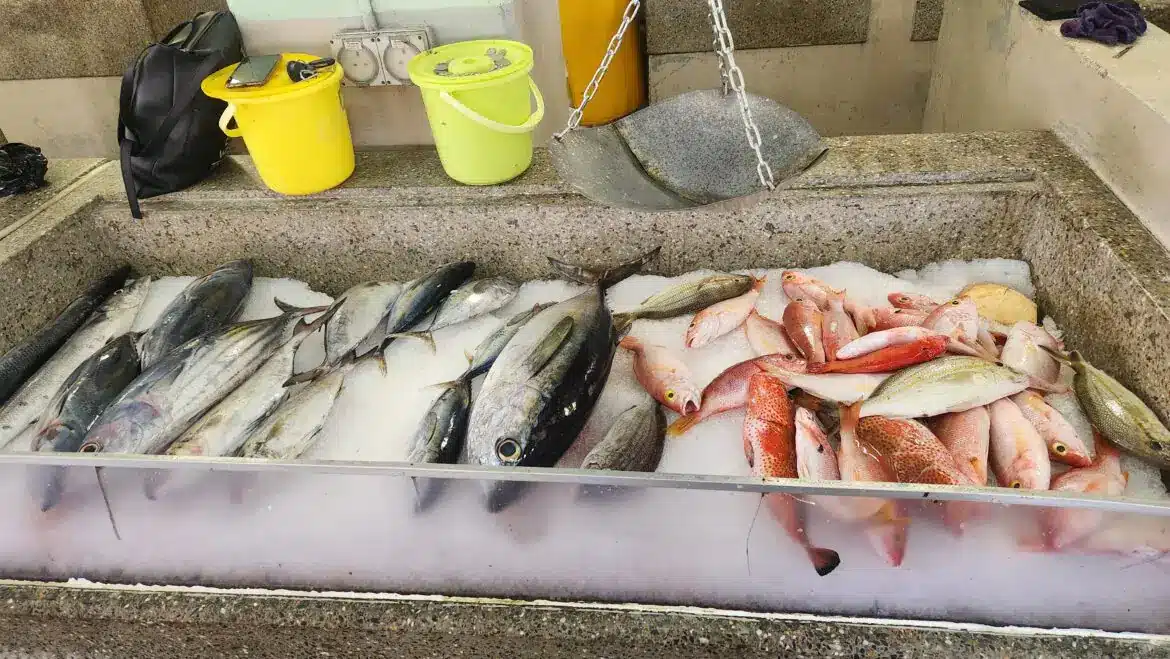Depending on who is doing the speaking, St Vincent and the Grenadines is anywhere between experiencing a boom in fisheries and the reality of gradual, despairing decline.
Local fishermen interviewed for this story all claimed there has been a serious reduction in catches. But, in a speech to open the 47th Annual Fisherman’s Day competition on May 27, Finance Minister Camillo Gonsalves noted: “The fish stock in St. Vincent and the Grenadines has doubled in comparison to that of other years.”

A 2021 study by the United Nations Food and Agriculture Organisation (FAO) however suggests that there are several important variables to be considered before a final verdict is considered.
For example, its research spanning 28 different landing sites suggests that depending on species, locations, and timing the indicators may point in different directions.
The data indicate that some fish species are particularly susceptible to overfishing because of poor growth rates or limited ability to reproduce, which puts them at risk of population depletion. Additionally, fishing during the breeding season can interfere with cycles of reproduction, making it more difficult for fish populations to be replenished.
The FAO study noted several patterns related to different species and population shifts.

However, data analysed from the Fisherman’s Day festivities over the last 10 years suggest an overall decline in fish stocks.
Annually, the winner of the largest catch is announced, and data sourced from local news articles showed that the winners’ catch in the year 2015 totaled 3111.8 pounds while in the years 2017 and 2018 the winners’ catch totaled 462 and 928 pounds respectively.
Concerned industry watchers suggest that changing circumstances such as marine pollution, uncoordinated infrastructure growth, global warming, and other natural elements contribute to disruptions in supply.
Whatever the reality, fisherfolk say they have made a commitment to ride the tide despite a wave of difficulties that threatens their lives and means of survival.
Randolph Medford, who has been fishing since the age of 15, believes the decline in fish stocks could be attributed to global warming. He says “because of the warm water, some fish just go”. Medford also spoke about the decline in the context of his role as a competitor in the annual Fisherman Day activity
“Well,” he said, “the first time I caught about almost 500 pounds, second time almost the same thing and this year I’m catching up to something, 200 something pounds”.

Meanwhile, Eli slater who has been fishing professionally for the last 45 years pointed to a number of reasons for the decline in fish such as global warming, infrastructure development, pollution. and the eruption of la Soufriere volcano between 2020 and 2021.
“We used to catch a lot more fishes before, but since the volcano eruption” said Leslie Hazelwood, a fisherman with over 40 years of experience, “we have got a lot of losses, I’ve been aware of the ashes covering the reef. So we have to go much deeper and search more in order to catch more fish.”
Meanwhile volcanologist/geologist at the University of the West Indies Seismic Research Centre Professor Richard Robertson said while volcanic eruptions will have a negative effect at the time of eruption, it can be more beneficial to the marine environment in the long run.
When Hurricane Beryl landed on July 1, it was also clear that the annual hurricane season, as influenced by projected more frequent and intense adverse weather events, is another important factor that can lead to long-lasting impacts on a sector upon which the lives and livelihoods of the population relies.
The damage to island infrastructure, particularly in the southern Grenadines, in addition to losses to vessels and fishing gear threaten to seriously hamper the activities of fisherfolk involved in an activity upon which the populations of these islands rely heavily.
For now, the more pessimistic projections hold. But both officials and the fisherfolk of St Vincent and the Grenadines have promised a rebound in the not too distant future.





